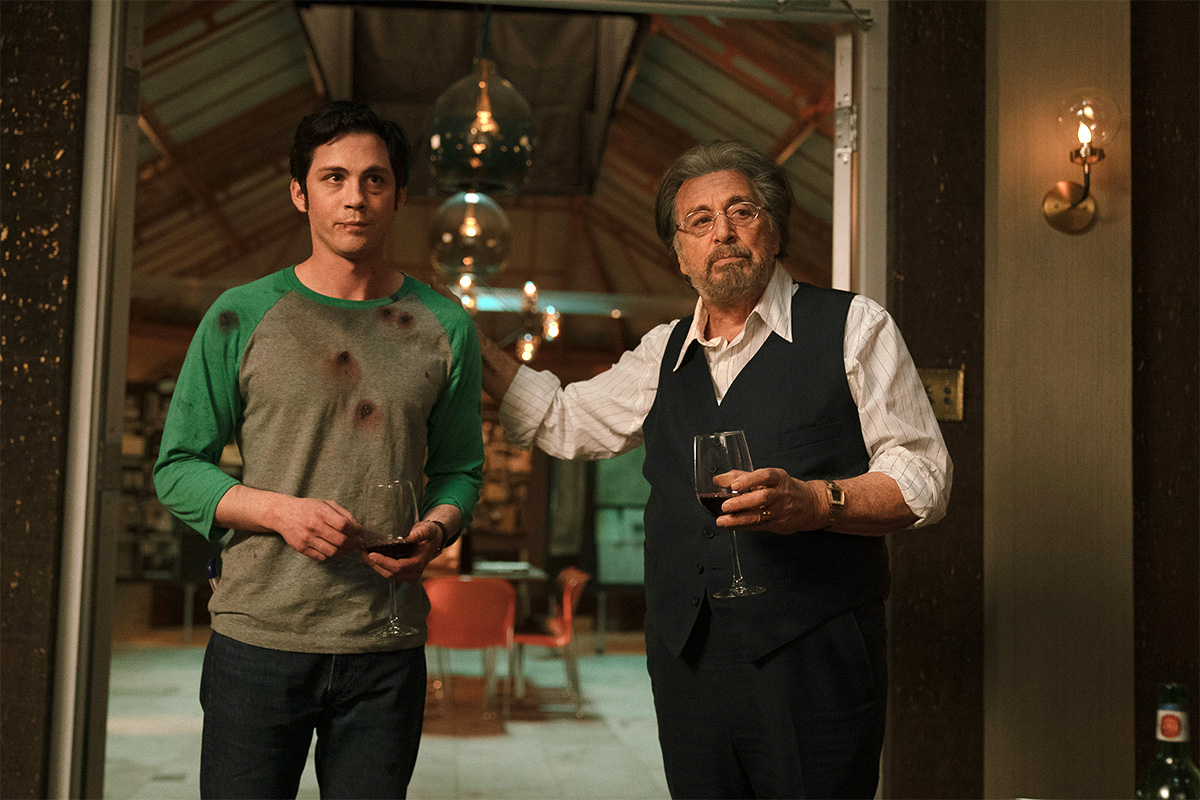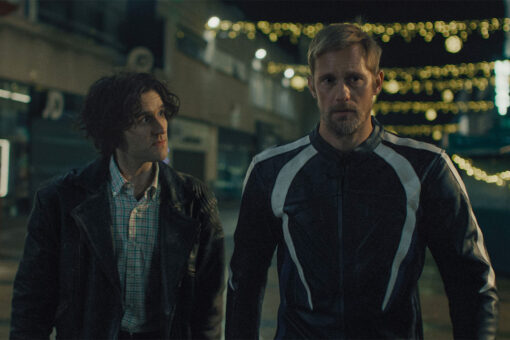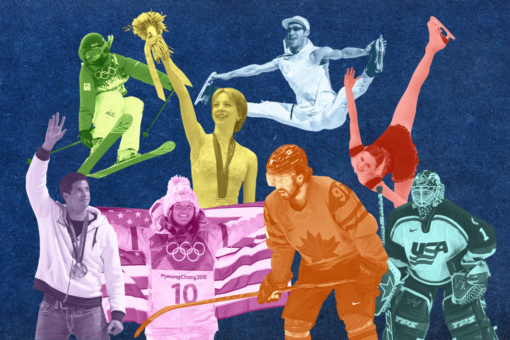There’s a Chappelle Show sketch that I love from the “Greatest Misses” episode. The characters known as the “Playa Haters” go back in time and talk trash to a slave owner before Dave Chappelle’s character pulls out a gun and aims it at the slave master. The sketch cuts away to Chapelle in front of a live studio audience explaining that what comes next is why the bit never aired on an actual episode of the show. It resumes the sketch, with a slave asking Chapelle’s character when they will be free. Chappelle answers, “How ‘bout now?” and shoots the master right in the heart. The moment of the bullet hitting the white slave owner is played on loop three more times before cutting to Chappelle in front of the audience again, barrelled over laughing.
“Apparently shooting a slave master isn’t funny to anybody but me and Neal [Brennan, the show’s co-creator and co-writer]”.
I understood where Chappelle was coming from because I love watching Nazis die. Shot, stabbed, burned alive, run over by a tank, melted by the power of the Ark of the Covenant — find a new way to portray a Nazi dying, and I’ll watch. It’s not real bloodlust, but rather that I am ultimately empowered by the role reversal of a genre where Jewish justice is served through the subjugation of the Nazi.
That’s why, when I first saw the trailer for Amazon Prime’s new show, Hunters, I said, “I think this is my favorite show ever.” It seemed to have pretty much everything I want in a show: 1970s New York City, Carol Kane, and Nazi hunters.
What I got was something unexpected: Instead of Nazis getting killed, we’re presented with an onslaught of images of Jews in concentration camps being killed in what amounts to stylized snuff porn. These subjects are framed pitifully through a Nazi gaze that objectifies the suffering Jewish body through acts of outlandish and exaggerated brutality.
One scene shows a Jewish band playing Wagner for a guard, defiantly switching to “Hava Nagila” before being shot one by one as they continue to play the traditionally celebratory song. Another finds a Nazi officer making Jewish prisoners stand around a microphone, singing the Nazi party anthem, while the officer shoots every singer who displeases him until only one is left. And, in the most controversial of these scenes, a large board is made for a game of human chess, where the concentration camp prisoners have to kill each other when they are captured. The scene was decried by the Auschwitz Museum because nothing like that is known to have actually happened. The account tweeted, “Inventing a fake game of human chess for @huntersonprime is not only dangerous foolishness & caricature. It also welcomes future deniers.” Power is an afterthought, coming secondary to sensation.
I realize, of course, there’s some hypocrisy on my part, talking about how I’m fine with violence only if it’s inflicted upon my enemies, but when it’s turned around I complain. It’s supposed to be art, right? Isn’t that the idea? Isn’t that supposedly the big problem we’re having these days? The complaint is that people who say they are harmed by art that makes them uncomfortable are being overly sensitive, be it famous novels that college students ask to be labeled with trigger warnings to the comedy of aforementioned Chappelle, who has been accused multiple times of trafficking in jokes that blame victims and some that are downright transphobic. I try to avoid harming people through my own work by careful listening and feedback, as I personally don’t believe harm is a necessary part of making art. As a viewer, I draw a line when it comes to two things: rape scenes (almost always unnecessary and gratuitous), and violence towards historically marginalized people. Haven’t they been through enough? I wonder, as I turn it off.
I won’t win an argument about what counts as art, and that people have a right to refuse harm at the expense of someone else’s work. That’s not the conversation I want to be having here. So, even as anti-Semitic attacks are on the rise, our last living links to the Shoah are being eroded by time, and Jews all over the planet find ourselves in one of the tenser moments in recent history, I tried to hold back my criticism of Hunters. I thought long and hard about how I might be interpreting the show’s asymmetrical ratio of violence against Jews in a way that was overly sensitive. I was viewing this as a Jew in 2020, and as the grandchild of Holocaust survivors. Was I being too reflective? Too judgemental? Besides, the show was created by a Jew, and stars a number of Jewish actors from Logan Lerman in the lead to Jeannie Berlin, Josh Mostel, and Judd Hirsch. Maybe I should let it go? I don’t have to like everything.
But when I emplaced Hunters within Amazon’s portfolio of original content, and considered the network’s (is it a network? Perhaps the platform, rather) gaze overall, I had the unfortunate realization that Hunters was exemplary of how Amazon represents Jewish stories on screen. Hunters is a feature, not a bug.
Admittedly, I couldn’t finish every episode of Hunters, but I did watch the most-recent season of the acclaimed The Marvelous Mrs Maisel. And while I’m a sucker for period pieces, and found the show charming enough, each episode would end with me experiencing some shame for enjoying what amounts to a winking caricature of my culture, and to some extent, a scenic portrayal of the worst criticisms of my ethnicity.
In the liner notes for the 2006 compilation Jewface, a collection of “Yiddish dialect songs” from the early 20th century, featuring tracks such as “When Mose With His Nose Leads the Band,” “I’m a Yiddish Cowboy,” and other songs from the age of the “Hebrew comedian,” critic Jody Rosen calls these performers “a fixture of the vaudeville stage who trafficked in “an art of extravagant crepe beards, gargantuan putty noses, broad ersatz-Yiddish accents, and catchy songs.” As the album’s title suggests, it is Jewish minstrel music — largely written and performed by Jews.
Maisel, like Hunters, has Jewish roots: Creator Amy Sherman-Palladino’s father was Jewish, and the show does feature Jewish actors and actresses, but the title character, Midge, played by Rachel Brosnahan, and her parents, played by Tony Shalhoub and Marin Hinkle, are all not Jewish. Their characters, however embellished, embody Jewish stereotypes: fast-talking, dirty joke-making (Jews as “filth peddlers” is an old stereotype that remains to this day), too smart for their own good. It is 21st century Jewface: non-Jewish actors playing up very Jewish stereotypes. It seems harmless enough, or does it?
The Jewface from 100 years earlier was also poking fun at similar stereotypes. The difference, I’d wager, is time. That, and the fact that 20th century Jewface usually featured Jews taking charge. As Rosen notes, “Why would a Jew embrace Jewface music? For one thing, the songs performed a neat little cultural juijitsu, smuggling bits of Yiddishkeit into America.” Maisel doesn’t really do that, neither does Hunters, and Amazon’s third offender, an alternate history adaptation of Philip K. Dick’s The Man In the High Castle, doesn’t attempt to be even a little Jewish. Here, on the show based off a novel where the Axis Powers won World War II and the Nazis control half of America, the Judaism of this universe is altogether absent. What suffers under the rule of the Reich is generalized as a secular, sovereign Americanness, while Jewishness is erased altogether.
What these shows represent to me is part of a larger trend toward uncritically co-opting the Jewish experience as an easy metaphor for life in 2020. My problem with Hunters was not the difficult ratio of violence by Nazis against Jews, but that it was a careless, superficial portrayal that fell short even of the revenge fantasy genre. The resistance of Al Pacino’s merry band of Nazi hunters is played for laughs, while the unsmiling Nazis mete out humorless, sadistic, outrageous violence that is both a continuation of and far worse than what actually happened to real victims of the Holocaust.
Representations of the Jewish experience — whether for laughs or for bloodsport — that engage uncritically with themes of power and diaspora ultimately do more harm than good. Whether it’s the overall lack of Jewishness under Nazi occupation in The Man in the High Castle, the tired stereotypes of The Marvelous Mrs. Maisel, or the stylized yet empty portrayals of Jewish suffering in Hunters, we’re at an important point where the way we visualize the violence of marginalization matters more than ever.
Image by Christopher Saunders



